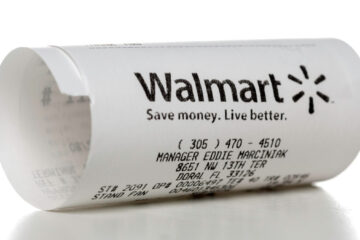The end of pandemic-era protocols creates a whole new set of problems for the cruise industry.
When the cruise industry in July 2021 returned from the shutdown, imposed by the Centers for Disease Control and Prevention, from U.S. ports, I was one of the 800 or so passengers on the first sailing of Royal Caribbean’s (RCL) – Get Royal Caribbean Group Report Freedom of the Seas.
Protocols hadn’t quite fully formed at that point, but masks were generally required indoors and everyone eligible to be vaccinated had to be vaccinated.
Rules settled in fairly quickly thereafter, with the cruise line — as well as rivals Carnival Cruise Line (CCL) – Get Carnival Corporation Report and Norwegian Cruise Line (NCLH) – Get Norwegian Cruise Line Holdings Ltd. Report — requiring vaccinations for any passengers aged 12 and older as well as negative covid tests taken no more than two days before sailings.
When I told people I was sailing not just on that RCL comeback cruise but pretty much every month or so after it, I often got looks of horror. Cruises, to some of the noncruising public, were dangerous places where disease could spread unchecked.
In reality, everyone on board, aside from kids under 12, was both vaccinated and tested, and the entire cruise industry stepped up its already robust cleaning procedures while also improving air filtration.
Yes, illness can spread in a closed environment like a cruise ship no matter what precautions are taken. But the same can be said of theme parks, airplanes, hotels, concerts, and sporting events. You’re just not still at those things when you actually get sick.
Cruising — at least for me — seemed a lot safer than going to a grocery store in the South Florida city we lived in at the time. There, you never knew whether the unmasked person standing nearby who did not believe in social distancing had active covid. On a cruise I knew every person was vaccinated and tested.
That’s not total protection — nothing is — but the risk never seemed greater, or even as great, as that from simply running errands in my chosen home city.
Now, that has decidedly changed and it creates a dilemma for the cruise industry.
Image source: Daniel Kline.
Cruise Lines Drop (Most) Covid Rules
While the particulars vary a bit by cruise line, length of cruise, and destination, Royal Caribbean, Carnival, and Norwegian, have dropped most covid protocols.
Unvaccinated passengers can now cruise (with a negative covid test) while passengers willing to prove vaccination generally no longer have to test.
It’s easy to see why the cruise lines want to make these changes. If more people can cruise, in theory, they should sell more tickets.
The problem is that dropping protocols while covid still rages makes cruising less safe.
Yes, as every cruise industry executive seems to have said, these changes put the industry on par with other forms of travel. But that does not change the reality that what was once a nearly fully vaccinated environment will be adding unvaccinated passengers to the mix — and that increases the risk for anyone taking a cruise.
And while people want to make this a political question, for the industry it’s purely an economic one. Many cruisers are of a certain age, and the question for Royal Caribbean, Carnival, and Norwegian is: How do you balance safety and being able to sell as many tickets as possible?
That question is not simple, nor should it be reduced to a referendum or any sort of political debate. The cruise lines want to be as accommodating as possible to as many people as possible while also making all passengers — some of whom are elderly or have other health issues that make covid a greater risk — feel both safe and welcome.
Smooth Sailing for Now
As a relatively healthy 48-year-old man who has been vaccinated and boosted (again, forget any politics behind those decisions), I’m still planning to cruise in mid-September, October, and December.
If, however, I had any health concerns, the near end of covid protocols would give me more cause for concern than I had when the rules were very strict.
Royal Caribbean, Carnival, and Norwegian must balance actual safety, the appearance of safety, and the bottom line.
Cruising has been one of the safest, if not the safest, travel options since it returned to regular service. These changes make being on a ship less safe but should lead to more passengers on board, perhaps pushing ticket prices higher. That’s good news for the cruise lines, but it’s also a very thin line to walk.
Royal Caribbean, Carnival, and Norwegian all embraced the need to create a safe environment during the darkest covid days. That’s not actually new — the cruise lines have always worked hard to stop the spread of illness on their ships.
But all three must stay vigilant and be willing to reinstate some covid protocols if the situation changes.


